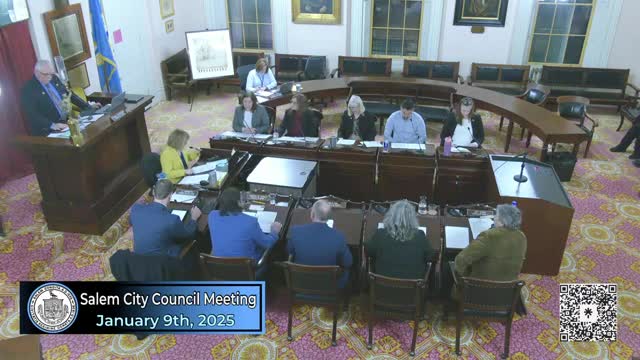Salem council approves home-rule petition to update payments from South Essex Sewerage District
Get AI-powered insights, summaries, and transcripts
Subscribe
Summary
The council voted unanimously to send a home-rule petition asking the state to allow increased payments in lieu of taxes from the South Essex Sewerage District, gradually raising Salem’s annual payment and indexing future payments to inflation.
The Salem City Council on Jan. 9 voted unanimously to send a home-rule petition to the state that would change how the South Essex Sewerage District (SESD) pays the city for hosting district facilities.
Councilors said the existing payment schedule — a flat annual amount set by the Legislature in 1993 — has not been adjusted for inflation, leaving Salem with an estimated $6 million in lost revenue over three decades. The petition would phase an increase starting at $600,000 in 2025 and rising to $1,000,000 by 2029, after which payments would adjust annually with inflation by at least 2 percent, as described by council speakers.
Councilor Mousel called the situation “frustrating” and said the city has borne environmental and infrastructure burdens — including pipes, traffic and odor complaints — while other member communities benefit. He urged Salem residents and officials to press state legislators to act. Councilor Cohen, who attended a recent SESD board meeting, noted the facility is largely underground but warned of climate-related risk because of its waterfront location and encouraged outreach to members of the region’s legislative delegation.
The motion to send the home-rule petition to the Legislature was adopted by roll call; 11 councilors voted in the affirmative.
Why it matters: Council speakers framed the petition as a modest, corrective fiscal measure to compensate Salem for hosting a regional wastewater facility on waterfront land that imposes maintenance and climate-related costs on the city. The petition must be approved by the state legislature before payments change.
What’s next: The city will forward the petition to the state delegation; councilors urged residents to contact state senators and representatives in support of the change.
